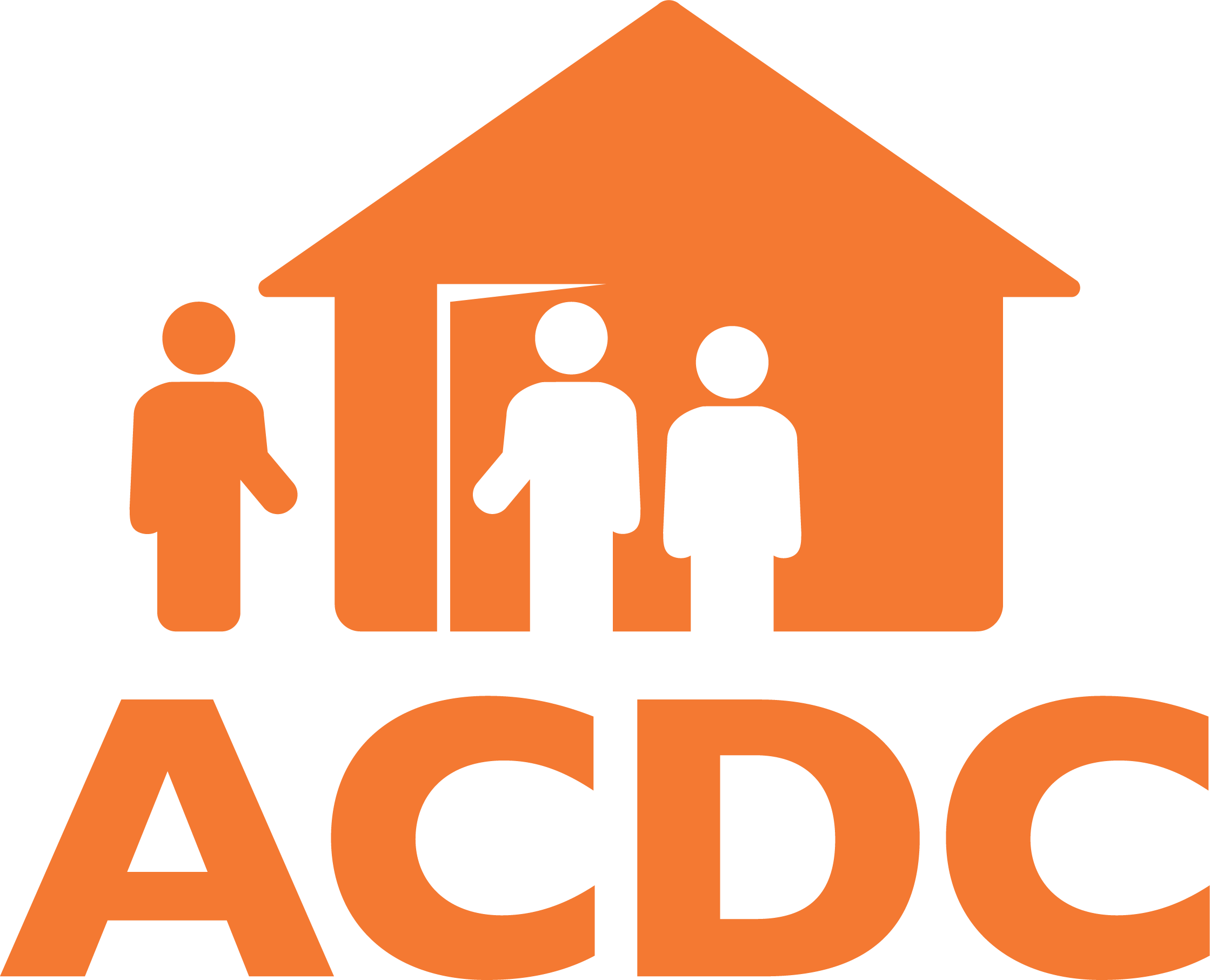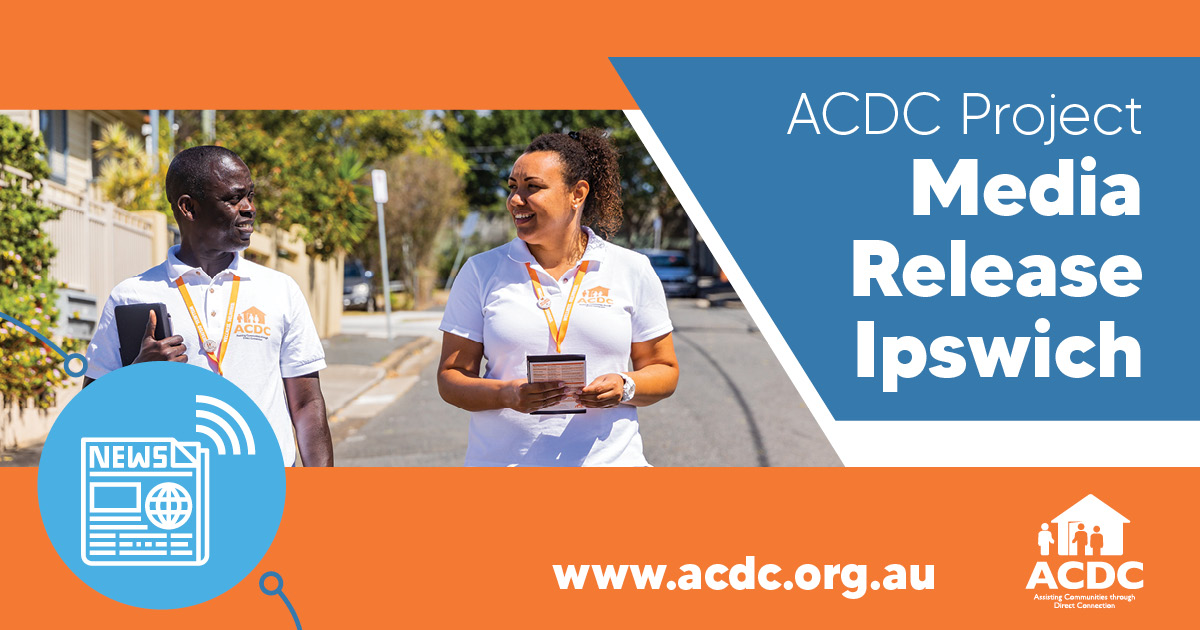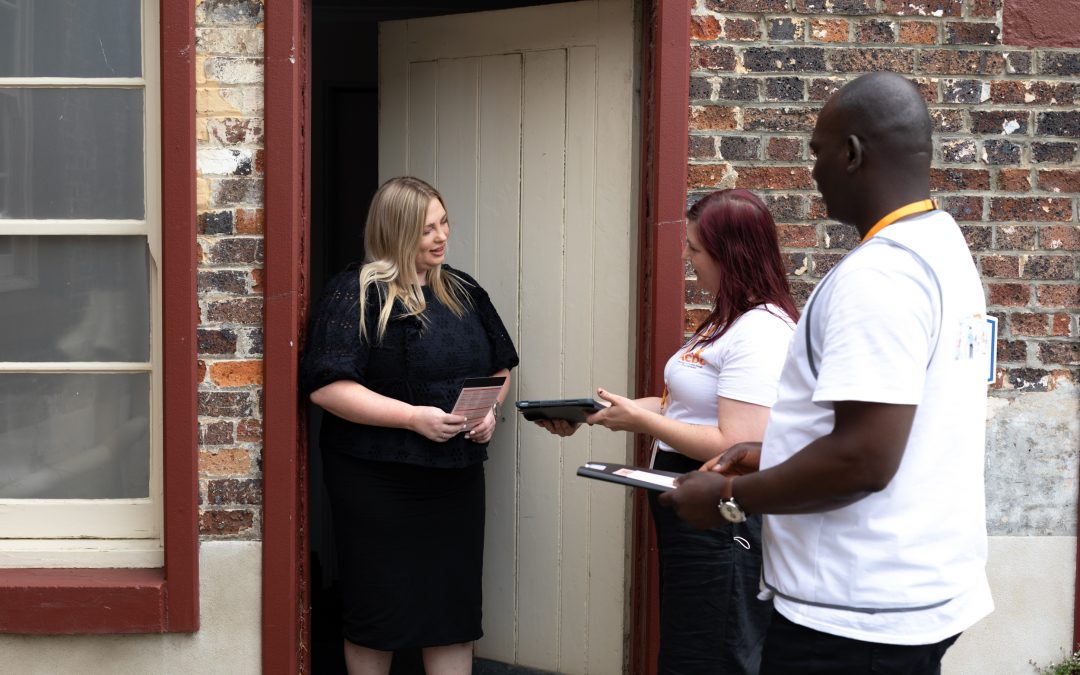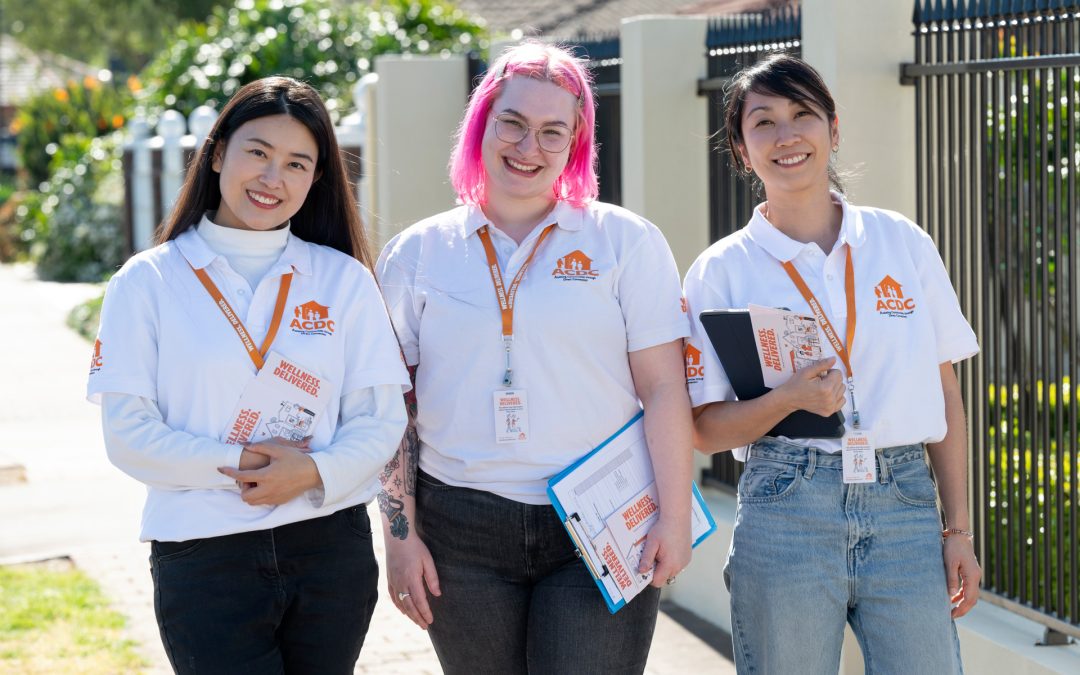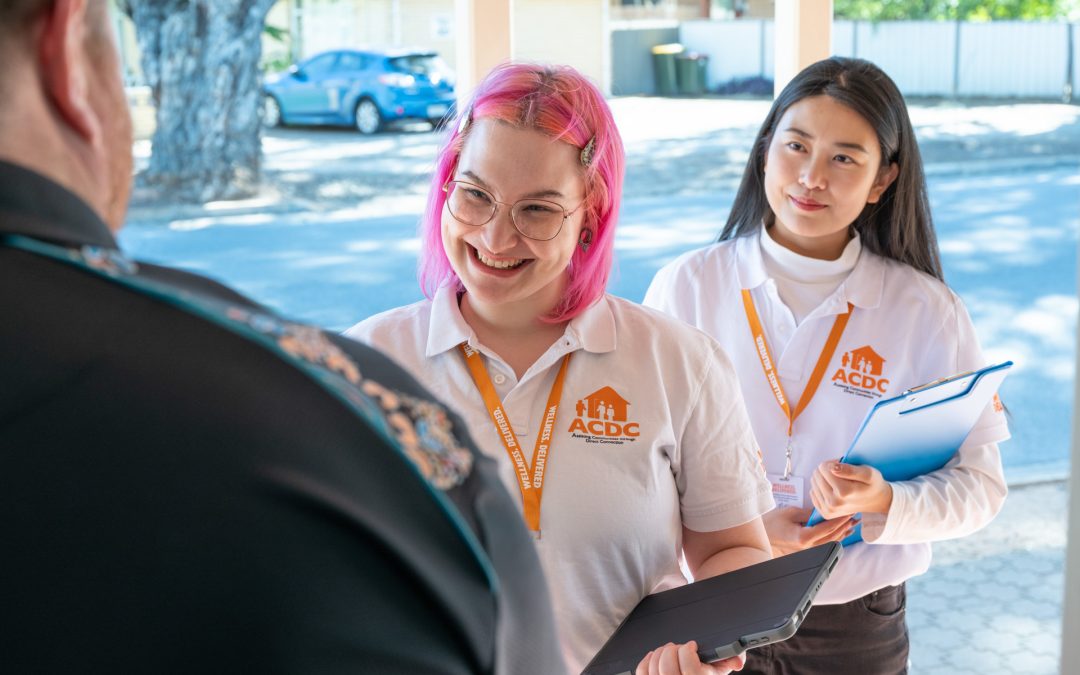Sometimes all it takes it is a conversation.
A new project in Ipswich aims to talk with community members about their mental health and help link them with wellbeing services in their area.
With the impacts of the COVID-19 pandemic still felt throughout Australia, the Assisting Communities through Direct Connection (ACDC) project is going door-to-door to check-in with locals. The ACDC Project, run by Community Mental Health Australia, is visiting over 20 sites in Australia to improve community wellbeing and collect important data.
“Unfortunately for many reasons people do not want to talk about or even think about their mental health,” says CEO of Community Mental Health Australia, Bill Gye.
“People may prefer to tough it out, hide it from others, or avoid the stigma. The ACDC Project is going directly to households in Australia to engage them in conversation about these important issues.”
The ACDC Project are not typical door knockers. They make contact via friendly ‘People Connectors’ who let people know about the free services available and deliver an information pack with a fridge magnet and brochures.
The ACDC Project are working with Stride Mental Health to doorknock in North and West Ipswich from September to December 2021.
People Connector David Ayambo says Ipswich locals have been very open to having a conversation and engaging with the Project.
“The reception by householders has been positive and we hope it continues that way.”
The local services included in the information packs are easily accessible and relevant to the Ipswich community.
ACDC Project Line Manager, Tristan Brownson, says she hopes the Project will help people navigate the mental health system.
“Even people who are aware of their own mental health often have difficulty navigating the systems and services. Through conversation we hope the Project can support householders to access the services that correctly meet their needs. We are taking this support directly to people at their homes,” she says.
The other aim of the ACDC Project is to gather feedback on any service gaps, so that improvements can be made by local, state, and federal governments.
For each of the communities visited throughout Australia, the ACDC Project will generate data and information about the reasons why people do not access support from local services.
“The results of the survey will help in understanding how people in Ipswich are doing and the issues that are impacting them. We hope to find out what is needed to improve their wellbeing and if people need more supports,” says David.
The findings of the ACDC Project evaluation report will contribute to discussions about funding for community managed mental health services in Australia, and how the mental health support needs of people in communities are delivered.
It will also evaluate how effective a proactive approach is in reaching, engaging, and resourcing people to connect with services.
“The ACDC Project aims to address a serious problem with mental health services in Australia. Often, people only look for or receive support when they are in crisis. We must be much more proactive connecting and communicating with people about the importance of wellbeing. Prevention and early intervention is far more effective than dealing with people in crisis,” says Bill Gye.
The ACDC project provides this important information to householders of all educational, cultural and language backgrounds to promote access to mental health, social and emotional wellbeing support.
If the householder is not home a card is left in their letterbox with contact details so they can ask the People Connectors to come back.
The ACDC Project is funded by the Department of Social Services.
END
